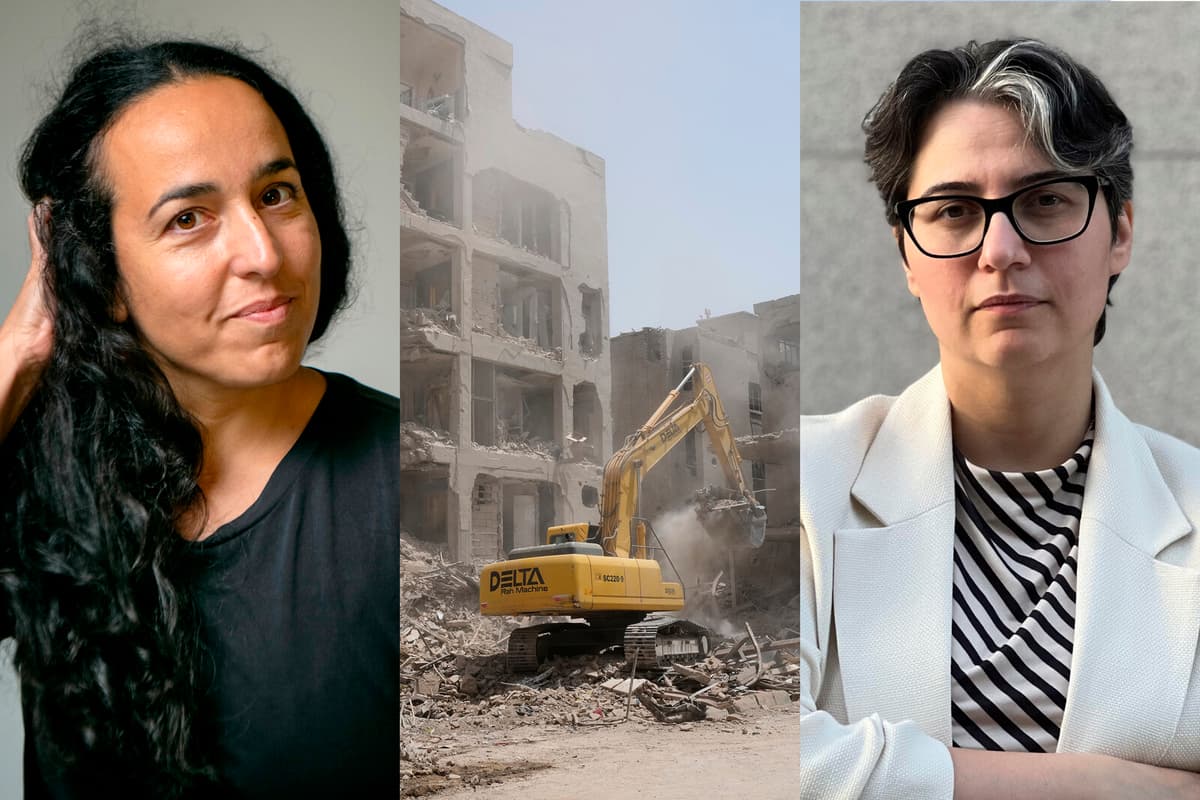Swedish-Iranian Marmar Moshfeghi is a political scientist, and works as a coordinator within home care services. There, she gets an opportunity to think about something else for a while every day, she says. She has talked to her colleagues about what is happening in her home country, and appreciates the support she has received. But that is not the case for everyone, she tells.
Beside her work, Marmar Moshfeghi runs an Instagram account that gathers Iranians, both in the diaspora and inside Iran, and analyzes Iranian issues. Many send her messages and tell her how the recent weeks' events affect them, especially at work.
I know that it has been tough for many Iranians to deliver. You cannot concentrate on anything, she says.
For Marmar Moshfeghi, however, it is important that the focus is on the population in Iran, who in addition to Israel's military attack also have to endure their own regime's oppression.
Parallel world
Author Pooneh Rohi has also had concentration problems, she says. She thinks it is tough to be far from her relatives in Iran.
It is hard to be a present parent when you are all the time sitting in front of the screen and trying to get information.
One is thrown into a kind of parallel world. At the same time, things happen in one's own life here that one must interact with. It can feel strange to sit and talk about something else, but maybe one needs it to not go crazy, she says.
Unite on one thing
There is no consensus among the approximately 120,000 with Iranian background living in Sweden on how the home country should be governed best. Some want to see a return to the monarchy, with the former Shah's son Reza Pahlavi at the helm instead of today's religious regime. Some sympathize with other opposition groups, which are often also controversial among Iranians.
But on one thing, everyone agrees: The regime must go, says Marmar Moshfeghi.
Israel launched its attacks on Iran on the night of June 13. The stated purpose was to prevent Iran from developing nuclear weapons by destroying infrastructure linked to the Iranian nuclear energy program. Israel has since then daily attacked Iran's nuclear energy facilities and other targets. A long list of high-ranking Iranian military personnel have been killed.
Iran has responded by attacking Israeli cities with drones and rockets.
Nine days after Israel's initial attacks, the US took an active role in the conflict by bombing three important Iranian nuclear energy facilities – in Fordo, Natanz, and Isfahan.
A few days later, Iran carried out an attack on a US military base in Qatar. No Americans were killed or injured.
On Tuesday, Israel and Iran agreed on a ceasefire. Then, 28 Israelis had been killed. According to Iranian reports, at least 627 Iranians have been killed. Among the death toll are many civilians.






